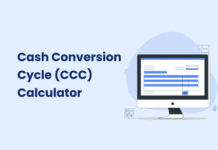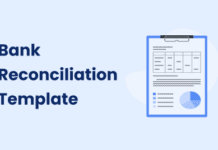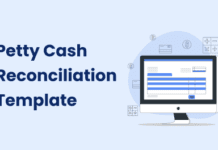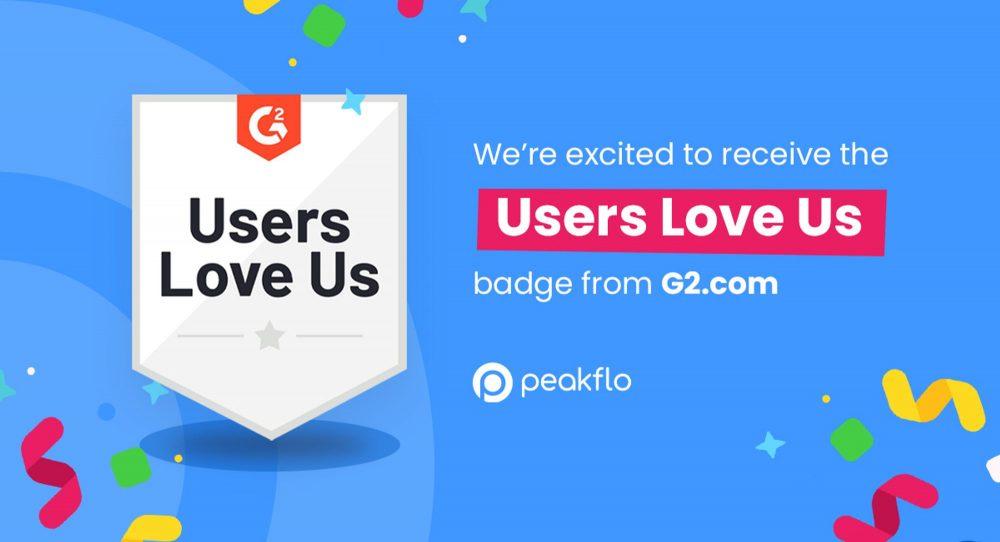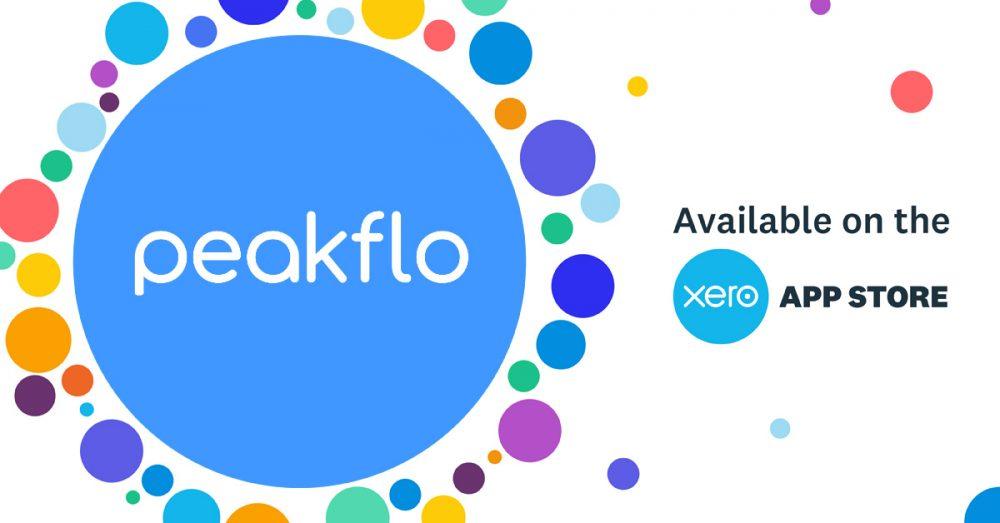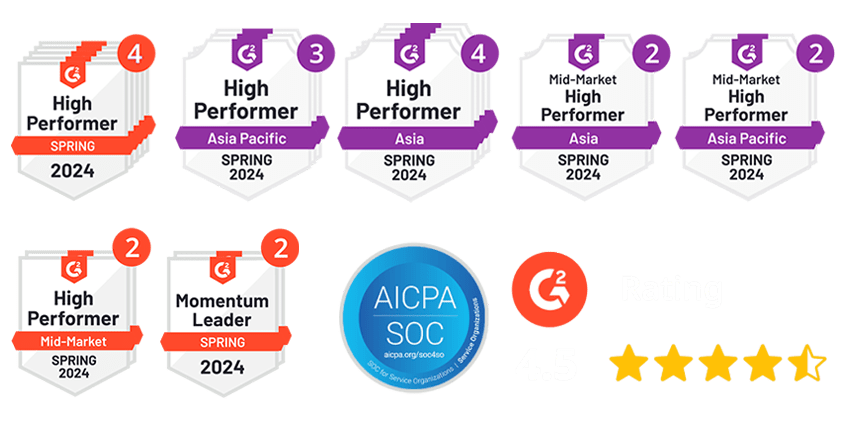Sales teams often struggle with a frustrating reality: their best reps spend most of their day on administrative tasks instead of actually selling. AI sales calls are changing this dynamic, with McKinsey reporting that professionals who have adopted this technology have experienced a remarkable 50% increase in leads and appointments. Rather than replacing good sales representatives, AI is making them even better by handling routine work and freeing them to focus on what they do best—building meaningful customer relationships.
AI for sales calls can automate outbound phone calls, allowing your team to spend more time on high-value customer interactions. Your sales reps no longer need to struggle with repetitive tasks. Instead, AI sales calls can analyze thousands of data points, identify the most promising prospects, and tailor each conversation to the specific customer. This technology also enables you to scale your outreach efforts without expanding your team, connecting with more potential customers in significantly less time.
Conversational AI cold calling handles more than just initial outreach—it provides valuable insights through call transcription and analysis. The technology spots patterns in successful sales conversations, helping your team understand what works best for closing deals. AI sales call analysis gives you real-time analytics that enable your representatives to personalize their strategies and make their interactions more effective.
Understanding how AI can enhance your sales operations and knowing which features deliver the best results is crucial for maintaining a competitive advantage. In this guide, we’ll explore how AI is becoming an essential productivity partner for forward-thinking sales teams, the core components of these systems, and the specific features that can boost your sales performance as we approach 2025.
AI Has Changed How Sales Teams Operate
High-performing sales teams are recognizing that AI isn’t just another tool—it’s becoming essential for staying competitive. Gartner’s research indicates that by 2025, 80% of B2B sales interactions will leverage digital technology to boost productivity and enhance customer experience. This shift represents more than technological adoption—it’s about amplifying human talent rather than replacing it.
AI as a productivity partner
Sales professionals face a startling reality: they typically spend only about 25% of their time actually selling to customers. AI could potentially double that percentage by handling the tasks that surround selling but don’t add substantial value. This represents an unprecedented opportunity to reclaim productive hours.
64% of sales professionals report saving 1-5 hours weekly by using AI to automate routine tasks. These productivity gains add up quickly across teams, with companies that have empowered their sales forces through technology consistently reporting efficiency improvements of 10-15%.
What tasks does AI handle for sales teams?
AI takes over time-consuming responsibilities that previously consumed a sales rep’s day:
- Automating data entry and CRM updates
- Scheduling meetings and sending follow-up communications
- Analyzing customer data to identify patterns and opportunities
- Transcribing calls and highlighting key moments
AI integration is reshaping how sales teams operate on a fundamental level. According to IBM research, AI facilitates personalization through seamless integration across CRM systems, backend databases, and business applications, providing sales representatives with a comprehensive 360-degree customer view.
Sales teams that were once reactive and fragmented are becoming proactive, integrated, and predictive. This allows representatives to spend more time building relationships and closing deals rather than struggling with administrative burdens. The technology serves as a productivity partner that amplifies human capabilities instead of replacing them.
Why Top Sales Reps Are Embracing AI Tools
Sales professionals who consistently hit their numbers understand something that others are still figuring out: AI isn’t just another tool—it’s becoming essential for staying competitive. The adoption of AI in sales continues to accelerate, with 43% of sales representatives now using AI in their jobs—up significantly from 24% in 2023. This still lags behind other sectors, such as marketing, where adoption rates have reached 74%.
What sets top performers apart? Those reporting the greatest impact from AI on sales performance are three times more likely to use these tools daily or frequently. They’re also 4.8 times more likely to strongly agree that AI acts as a new teammate to collaborate with.
The benefits driving this adoption are substantial. AI helps teams improve conversion rates at every step in the selling funnel, contributing to more than a 30% increase in win rates. About 69% of sales professionals agree that AI can help them personalize the customer experience, while 70% report that using AI increases their response rates.
What makes conversational AI cold calling particularly valuable?
When AI handles initial qualification calls, sales teams can spend up to 40% more time with qualified prospects who are actually ready to buy. This means your best reps can focus on what they do best—building relationships and closing complex deals—while AI takes care of the preliminary work.
C-suite leaders across industries have taken notice, with 52% of executives reporting positive performance outcomes due to AI-powered workflows. Looking ahead, 85% of executives believe that by 2026, their workforce will make real-time, data-driven decisions using AI agent recommendations.
The most forward-thinking sales organizations are already creating what one expert described as “a perfect replica of your top-performing sellers”—autonomous personal agents that can identify, nurture, and even close deals by engaging customers across channels. This represents a complete shift in how sales teams operate, moving from reactive to predictive approaches that anticipate customer needs.
Core Components of AI Sales Call Systems
AI sales call systems rely on several key technologies working together to deliver the productivity gains and insights that modern sales teams need. Each component serves a specific purpose in the overall framework, from automating routine tasks to providing actionable intelligence about your sales conversations.
These interconnected technologies create a comprehensive platform that streamlines sales operations and enhances performance across your team’s workflow. Understanding how each piece fits together helps you evaluate which systems will deliver the best results for your specific sales processes.
1. AI-Powered Dialers and Scheduling
Modern AI dialers operate with sophisticated capabilities that extend far beyond simple auto-dialers of the past. These intelligent systems detect voicemails, busy signals, and dead numbers, connecting your representatives only when a live person answers. This capability alone can increase productivity by eliminating wasted time on unproductive calls.
Parallel dialing features allow the system to call multiple numbers simultaneously, automatically prioritizing high-intent leads based on historical data. For teams focused on outbound selling, this intelligent routing ensures your representatives spend their valuable time engaging with the most promising prospects rather than working through cold lists randomly.
Scheduling automation extends this efficiency throughout the entire sales process. AI voice assistants can manage bookings around the clock, capturing opportunities outside traditional business hours. This 24/7 availability proves especially valuable for teams operating across different time zones or handling inbound inquiries from various markets. Automated appointment reminders via voice calls or SMS also reduce no-shows significantly.
The scheduling component integrates seamlessly with your existing calendar systems, preventing double-bookings and ensuring optimal time allocation for your sales team.
2. CRM Integration and Data Syncing
Effective AI sales call systems create a seamless connection with your CRM platform. Salesforce, for instance, brings together all your customer data onto one integrated platform that unites sales, service, marketing, and IT teams with a single, shared view of your customer.
Screen pop functionality displays crucial information before each conversation begins. Agents receive the contact’s details, past interactions, and relevant notes right when they need them most. This contextual information enables personalization at scale, as representatives can quickly familiarize themselves with crucial details before engaging prospects.
The real value comes after calls conclude. The system automatically logs CRM data, recordings, and conversation notes without manual intervention. This bi-directional sync eliminates manual data entry, reducing the risk of errors and providing immediate access to updated information. Salesforce enables integrating all your data, systems, and AI models to automate tasks and optimize business processes.
This automated workflow creates a complete record of every customer interaction, ensuring your team has access to a comprehensive account history whenever they need it. Representatives can focus on the conversation itself rather than worrying about documentation tasks.
3. Call transcription and keyword detection
Advanced speech-to-text technology sits at the core of AI sales call analysis. Systems like Gong record and transcribe all calls, automatically updating your CRM with the activity data. This transcription capability does more than create written records—it enables intelligent analysis that can spot patterns your team might miss.
Sales managers can search transcripts for specific keywords to quickly find relevant information without listening to entire recordings. This searchability makes monitoring calls for quality and identifying buying signals much more efficient than manual methods.
AI tools can also highlight important keywords within conversations and analyze the tone and emotion behind spoken words. This detailed analysis helps identify patterns in successful calls, giving supervisors specific examples for training purposes. Sales teams that understand these patterns can replicate successful approaches across their entire organization, turning individual wins into systematic improvements.
4. Real-time analytics and dashboards
Real-time analytics provide sales managers with unprecedented visibility into team performance. AI sales call systems track essential metrics including call volume, connection rates, talk-to-listen ratios, and customer sentiment.
Gong’s sales analytics software breaks down activity data into clear analytics dashboards that reveal what’s working and what isn’t. The system detects and notifies you of activity that requires coaching, pipeline management, or activity tracking.
Actionable insights make these analytics truly valuable for sales teams. AI delivers specific recommendations for improving performance across your team, deals, and market approach. With Colibri’s platform, you can measure key metrics such as script adherence and customer sentiment, allowing you to coach based on data rather than subjective impressions.
The comprehensive integration of dialers, CRM systems, transcription tools, and analytics creates a connected ecosystem. This integration amplifies the effectiveness of your entire sales operation by ensuring all components work together to support your team’s success.
Key AI Features That Boost Sales Rep Performance
Sales reps often struggle to keep up with the demands of modern selling. AI sales tools are changing this reality by providing capabilities that enhance performance and productivity. These features serve as productivity multipliers, making good reps great and great reps exceptional.
1. Live call coaching and prompts
Real-time AI coaching provides sales representatives with immediate guidance during live conversations. Tools like Dialpad deliver built-in speech coaching that alerts reps when they’re speaking too quickly, using too many filler words, or not listening enough to the customer. Aircover’s AI agents deliver in-call coaching by providing answers immediately and reinforcing deeper discovery, value messaging, and the sales process in every conversation. This instant support enables even new team members to handle challenging situations with confidence.
2. AI cold calling with human-like interaction
Modern AI voice agents can initiate calls, ask qualifying questions, and engage in natural-sounding conversations with potential leads. These systems use technologies like speech recognition and natural language processing to sound remarkably human. AI allows your sales team to spend up to 40% more time with qualified prospects who are actually ready to buy.
3. Lead intent scoring and qualification
AI lead scoring evaluates potential customers using machine learning algorithms to predict which ones are most likely to convert. Traditional methods rely on static rules, but AI lead scoring adapts in real-time, analyzing patterns across thousands of historical deals. This approach helps businesses automatically assign scores to each lead, with higher scores indicating a greater likelihood to convert. Your team can focus exclusively on high-potential prospects.
4. Personalized outreach suggestions
AI-powered tools analyze historical data, sales trends, and external factors to generate tailored communications for each prospect. The technology suggests relevant products and precisely times outreach to resonate with individual prospects. For email communications, tools like lemlist’s AI sequence generator craft hyper-personalized messages based on your target audience and unique value proposition.
5. AI sales call analysis for training
Platforms like Second Nature provide a “virtual pitch partner” that uses conversational AI to simulate discussions with sales reps, score their performance, and help them improve independently. These practice sessions allow representatives to refine their skills without risking actual customer relationships. Hyperbound similarly enables reps to practice call scenarios without “wasting” client opportunities, compressing what previously took 3-9 months of learning into just one week.
6. Smart follow-up recommendations
AI systems automatically generate personalized follow-up messages based on prior interactions with buyers. They can extract key information from calls to create custom email templates with one click. AI can also identify the optimal timing for follow-ups, ensuring no touchpoint falls through the cracks. This consistency is critical, given that more than 40% of sales reps give up after just one follow-up, even though 80% of B2B deals require at least five touches to close.
7. Sentiment analysis for better engagement
AI technology can analyze the emotional tone in conversations, identifying positive, negative, or neutral sentiments. This capability helps sales teams understand customer feelings and tailor their approach accordingly. Some platforms even display sentiment scores for all calls in progress, allowing managers to instantly see how customers are feeling and intervene if needed.
8. Actionable summaries and task automation
AI creates concise summaries after each call or meeting, highlighting key topics discussed with links to specific moments in the conversation. The technology automatically detects action items during live calls and adds them to transcripts so nothing gets overlooked. AI can automatically update CRM records, create call summaries, and generate personalized follow-up emails, eliminating time-consuming administrative tasks.
Benefits of AI for Sales Reps and Managers
AI sales call technology delivers measurable advantages that extend well beyond simple productivity improvements. Companies across industries are witnessing substantial changes that directly impact their bottom lines and team performance.
1. Faster onboarding and training
Traditional sales onboarding can be a lengthy process, often stretching 6-9 months before new hires reach full productivity. AI-powered coaching changes this timeline dramatically. New representatives can become productive 3.4 months sooner when organizations implement AI coaching solutions that adapt to each rep’s unique learning needs.
AI sales coaching platforms provide data-driven feedback that accelerates the learning process. Organizations implementing these systems report a 40% reduction in time-to-quota achievement. New reps can practice with AI role-play bots, building confidence without risking valuable customer relationships during their learning phase.
Real-time coaching capabilities enable continuous feedback rather than waiting for periodic review sessions. This immediate guidance accelerates learning cycles and reinforces effective behaviors when they matter most. New hires develop competence faster while experienced reps maintain peak performance levels.
2. More time for high-value conversations
Sales professionals currently spend only 25% of their workday actually selling to customers. AI systems can potentially double that percentage by handling routine tasks that don’t add substantial value to the sales process.
AI handles time-consuming responsibilities that previously consumed a rep’s schedule:
- Automating CRM data entry (reducing manual entry by 40%)
- Analyzing call transcripts to generate follow-up suggestions
- Creating actionable summaries with minimal human intervention
Teams using AI tools have witnessed over 30% improvement in win rates. Sales professionals can focus on strategic activities that drive revenue instead of getting bogged down with administrative work.
3. Better visibility into rep performance
Sales managers can now access data-driven coaching insights instead of relying on subjective feedback. AI analyzes patterns across thousands of calls to identify specific coaching opportunities without requiring managers to listen to entire recordings.
AI makes coaching more targeted by identifying exactly where reps need improvement—whether with negotiation techniques, discovery processes, or content utilization. Managers receive alerts about pipeline issues throughout the sales cycle, enabling faster decisions about team health.
Companies using AI-powered coaching report 15% higher win rates, 14% increased quota attainment, and 18% reduced voluntary attrition. These improvements come from AI’s ability to provide expert guidance to every representative, regardless of their manager’s availability or coaching experience.
AI-powered dashboards offer visual snapshots of performance across multiple key metrics, helping managers quickly identify both coaching opportunities and top performers. This visibility creates transparency across the entire sales organization, building a culture of continuous improvement based on objective data rather than subjective impressions.
Best Practices for AI Sales Calls
AI sales calls can be a game-changer for your team, but successful implementation requires more than just deploying the technology. Managing AI sales calls effectively means finding the right balance between automation efficiency and human connection.
1. Keep scripts flexible and human
Effective AI scripts should sound natural and conversational, making customers feel they’re talking with a real person. However, sticking too rigidly to scripts can create problems. When conversations become too robotic, prospects get frustrated and opportunities slip away. The solution is building workflows that allow human intervention at critical moments, especially when conversations need a personal touch.
Your representatives should be able to override or adjust automated messages based on the specific situation. AI cannot read facial expressions or catch the subtle hesitation in someone’s voice—only your sales team can respond to these important non-verbal cues. Position AI as a collaborative partner rather than a replacement, letting your reps review and modify AI-generated messages when needed.
2. Use AI insights to refine messaging
Configure your AI system to track the topics that matter most for your sales process—customer pain points, common objections, next steps, and product interests. This data becomes the foundation for systematically improving your approach.
AI should support your sales process at every stage—before, during, and after customer conversations. During calls, let the technology handle background analysis while you focus on building genuine relationships. After each conversation, spend a few minutes reviewing AI-generated summaries while the discussion is still fresh.
AI can test different messaging approaches and analyze which ones produce the best results. This creates a data-driven foundation for your sales strategy and helps identify patterns in successful techniques, providing a clear roadmap for training and best practices.
3. Regularly audit AI outputs for accuracy
AI should enhance your team’s capabilities, not replace human judgment. Use it as a tool to improve performance, not as a way to avoid engaging with prospects. Even the most advanced systems need human oversight to ensure messages align with your brand voice and company values.
Create documentation and best practices for your team, encouraging them to share insights about how they’re using different AI tools effectively. Remember that 88% of B2B buyers are more likely to purchase when they see a salesperson as a trusted advisor. Position your team as knowledgeable experts whose skills are enhanced by technology, not diminished by it.
What Trends Are Shaping AI Sales Calls?
Sales teams need to prepare for rapid changes in AI sales call technology. Looking toward 2025, three key trends will reshape how businesses connect with prospects and manage their sales processes.
1. Hyper-personalization at scale
Customer expectations have moved far beyond generic sales pitches. Studies show that 71% of consumers expect personalized interactions, while 76% become frustrated when these expectations aren’t met. AI systems now analyze browsing history, past purchases, and behavioral patterns to create conversations that resonate with individual prospects. This data-driven approach delivers results, with 80% of customers more likely to make a purchase when brands offer personalized experiences.
For sales teams, this means AI can tailor each conversation based on a prospect’s specific situation, pain points, and buying history. The technology examines vast amounts of customer data to deliver uniquely relevant experiences at every touchpoint.
2. AI voice agents with emotional intelligence
AI voice agents are developing the ability to recognize feelings, not just words. Advanced systems analyze vocal cues, tone, and pacing to determine emotional states. These emotionally intelligent agents can adjust their communication style based on detected sentiment, creating more natural conversations that build genuine connections.
This capability enables AI to express appropriate empathy when customers voice concerns while maintaining authentic interactions. Sales teams can benefit from AI that recognizes when a prospect sounds hesitant, excited, or frustrated, then adapts the conversation accordingly.
3. Cross-platform AI integration (email, SMS, voice)
Modern AI connects seamlessly across multiple communication channels, maintaining consistent personalization throughout the customer journey. This integration creates unified messaging across voice calls, emails, and text messages—delivering coherent experiences regardless of how prospects engage.
Sales teams can now maintain context and continuity as conversations move from email to phone calls to text follow-ups. The AI remembers previous interactions and preferences, ensuring each touchpoint builds on what came before rather than starting fresh each time.
Peakflo AI Voice Agent: Your Sales Team’s Productivity Partner
Peakflo AI Voice Agent is transforming how sales teams engage with prospects by automating repetitive tasks and amplifying human capabilities. From handling outbound calls and qualifying leads to providing real-time call insights, the AI agent allows your sales reps to focus on meaningful customer interactions. It seamlessly integrates with your CRM, transcribes conversations, detects key information, and generates actionable follow-up recommendations, ensuring no opportunity is missed.
By analyzing patterns in successful calls, Peakflo AI Voice Agent not only helps your team close more deals but also accelerates onboarding and training for new hires, making it easier to scale high-performing sales practices across your organization.
Ready to see how Peakflo AI Voice Agent can supercharge your sales team? Book a call with our experts today and explore the future of AI-powered sales.
A Way Forward
AI sales call technology represents a fundamental shift in how sales teams operate. Throughout this guide, we’ve explored how AI serves as a productivity partner rather than a replacement for human talent. Sales professionals who embrace these tools gain a significant competitive advantage, with data showing up to 50% more leads and appointments.
The evidence shows that top performers already recognize AI’s value. They use these tools daily, treat AI as a collaborative teammate, and achieve win rates 30% higher than their peers. This performance gap will likely widen as AI technology continues to advance.
Forward-thinking organizations must prepare for emerging trends. Hyper-personalization, emotionally intelligent voice agents, and seamless cross-platform integration will soon become standard features rather than competitive advantages. Teams that adapt quickly will capture market share from those slow to embrace these changes.
These partnerships between skilled professionals and intelligent technology will redefine what’s possible in sales performance. AI won’t make average sales reps obsolete—it will make good reps exceptional.
FAQs
Q1. How are AI sales calls transforming the sales landscape?
AI sales calls are enhancing the capabilities of good sales representatives by automating routine tasks, analyzing customer data, and providing real-time insights. This allows sales teams to focus more on building meaningful customer relationships and closing deals, resulting in increased productivity and better performance.
Q2. What are some key features of AI sales call systems?
AI sales call systems typically include features like AI-powered dialers, CRM integration, call transcription, keyword detection, and real-time analytics dashboards. These components work together to streamline sales operations, provide valuable insights, and enhance overall team performance.
Q3. Can AI completely replace human sales representatives?
No, AI is not meant to replace human sales representatives. Instead, it serves as a powerful tool to augment their abilities. AI handles repetitive tasks, provides data-driven insights, and frees up time for sales reps to focus on high-value activities like building relationships and closing complex deals.
Q4. How does AI improve the onboarding and training process for sales teams?
AI-powered coaching solutions can significantly accelerate the onboarding process, reducing time-to-quota achievement by up to 40%. These systems offer personalized, scalable coaching that adapts to each rep’s unique challenges, allowing new hires to practice with AI role-play bots and receive real-time feedback without risking customer relationships.
Q5. What future trends are shaping AI sales calls?
Key trends in AI sales calls include hyper-personalization at scale, emotionally intelligent AI voice agents, and cross-platform AI integration. These advancements will enable more tailored customer experiences, better emotional understanding during interactions, and seamless communication across various channels like email, SMS, and voice calls.









![Why AI Sales Calls Are Making Good Sales Reps Even Better [2025 Guide] ai sales calls](https://cdn-kmjmp.nitrocdn.com/YvtqmrsiHUxqerlSiZgbfzqqTARWTElr/assets/images/optimized/rev-834053b/blog.peakflo.co/wp-content/uploads/2025/09/65168cf6-3001-4733-8cbc-12d5684cf449-218x150.webp)










